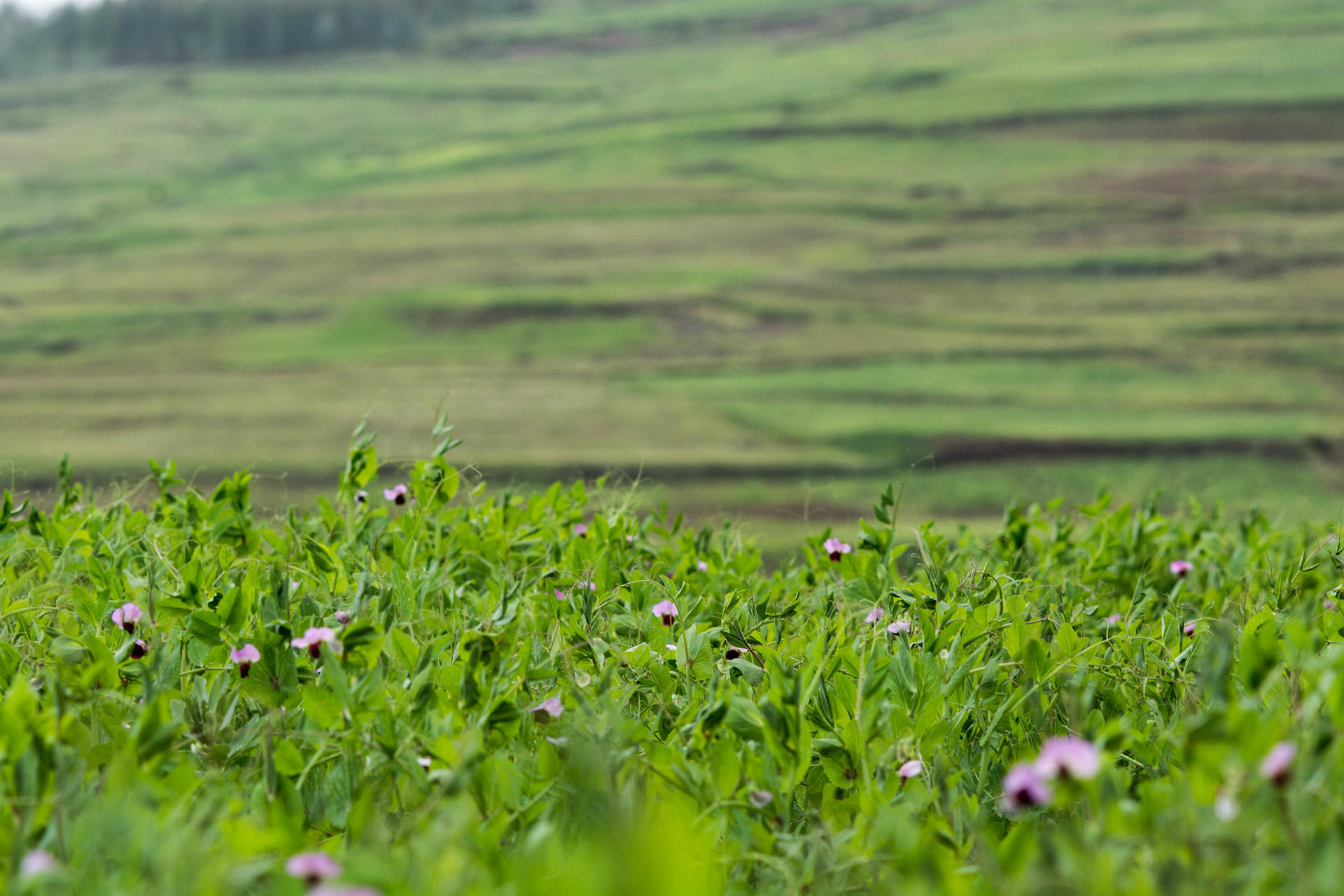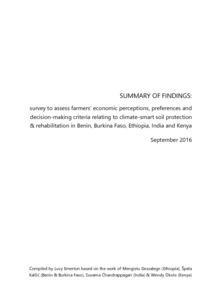Evaluating Land Management Options (ELMO)

ELMO is a participatory tool containing detailed guidelines for conducting surveys among farmers about sustainable land management decision preferences and trade-offs, offering a participatory approach to evaluate land management options from farmers’ perspectives.
This tool was originally developed by Lucy Emerton, Katherine Snyder and Justine Cordingley.
ELMO is organized around three basic questions and entails ten steps. It is technically simple to implement, with pens, cards, flip charts, ‘counters’ (such as beans or stones) and a camera (for documentation) being the only required equipment. Structured discussions and prioritization exercises shed light on farmers’ likes and dislikes of different land management options.
ELMO is not intended to be a stand-alone method. Rather, it forms one component of an integrated, interdisciplinary toolbox for collecting information to guide the design of land management interventions.
In what context is this tool useful?
The tool is primarily targeted at researchers, who may use the tool to identify ways of changing the economic conditions and circumstances that cause farmers to degrade land in the first place and instead set in place the opportunities and reward systems which will make sustainable land management a more viable, desirable, and profitable option at the local level.
Results achieved
A study to examine farmers’ perceptions, preferences and decisions regarding the use and adoption of different land management (LM) practices using ELMO tool was conducted in two separate regional states of Ethiopia. Participatory tools including focus groups and key informant interviews were used to capture farmers’ responses. This allowed to identify the local needs for ecosystem services and the prioritization of measures undertaken and analyze the appropriateness of the linkages between the measures and expected ecosystem services in Basona Worana Woreda, North Showa, and Doyo Gena woreda , Kembata – Tembaro Zone Ethiopia.
In this study, it is showed that farmers are well aware of the advantage, disadvantage and benefits of various land management practices. Accordingly, they can choose land management practices of their preference with respect to various socio-economic and ecological contexts. For instance, with respect to cost and input requirements for implementation of land management practices, variation was obvious among sites.
The perception analysis for benefits and desired outcomes of the various land management practices in this study showed a very similar result among the two sites. In both cases biological measure is found to offer the best drought resilience and other services assessed in the study than the other LM practice considered. This similarity in ranking at both sites may reflect the fact that common results (benefits) are accrued when similar land management practices are applied at various sites. Participants at both sites identified land management practices in terms of their provision of ecosystem services which appears matching existing scientific knowledge. For instance, they identified biological measure as the number 1 land management practices to contribute to drought resilience, enhanced soil fertility, water flow etc., which scientifically appears correct. This shows the strong local knowledge of farmers about the various benefits of land management practices (local knowledge of land management practices).
Overall, ELMO contributed to:
• Assess the local preferences of farmers among various ecosystem services
• Evaluate and prioritize various restoration measures (land management measures) visa-a-visa ecosystem services.
• Analyze benefits (positive effects) and risks (negative effects) from the various land management practices
• Identify and rank restoration measures based on farmer’s needs and preferences.
Variations on this method
ELMO’s 10-step process is designed for African conditions and may require substantial adaptation for use in agricultural systems in other continents. We welcome adaptation by other researchers.
Contact person
Desta Lulseged - [email protected]




